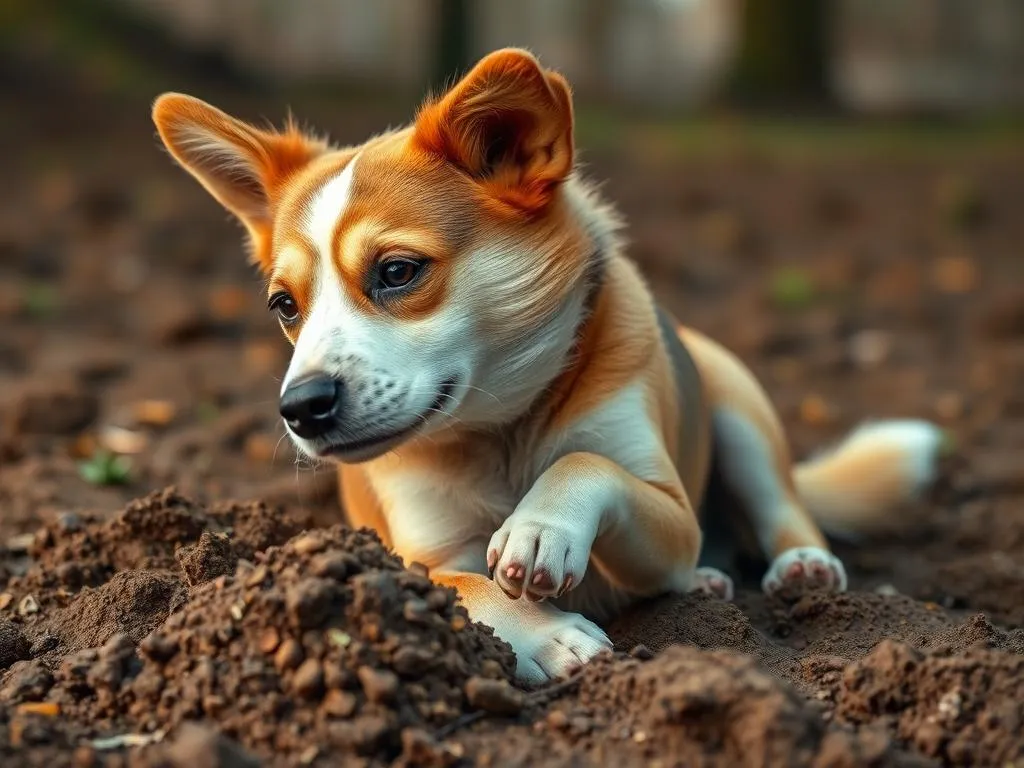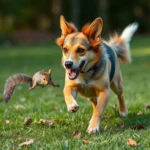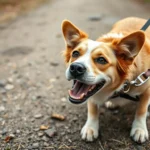
Introduction
Understanding dog behavior is crucial for pet owners who want to foster a healthy and happy relationship with their furry companions. Among the myriad of quirky things dogs do, one behavior stands out: rolling in poop. This particular action not only raises eyebrows but also prompts many questions among dog owners. Why do dogs roll in poop? This article delves into the reasons behind this behavior, exploring both instinctual and learned behaviors while highlighting its implications from a health perspective. We’ll cover a range of topics, including the instincts behind this behavior, social aspects, health risks, and effective training techniques to manage it.
Understanding Dog Behavior
What is Dog Behavior?
Dog behavior encompasses a wide range of actions, reactions, and habits exhibited by dogs. Studying these behaviors is essential because it helps owners understand their pets’ needs and emotions. Dog behavior can be categorized into instinctual behaviors, which are innate and often survival-driven, and learned behaviors, which are acquired through experiences and interactions with humans and other animals.
Common Dog Behaviors
Beyond rolling in poop, dogs exhibit various behaviors such as barking, digging, and chasing. Each behavior has its roots in either instinctual or learned responses to their environment. Understanding these behaviors can provide context for the seemingly bizarre act of rolling in feces. For instance, behaviors like barking or digging are often linked to communication, exploration, or playfulness, just as rolling in poop can stem from instinctual drives or social interactions.
Reasons Dogs Roll in Poop
Instinctual Behaviors
Dogs have retained many of their ancestral instincts, which can manifest in peculiar ways. One prevalent theory about why do dogs roll in poop is related to their instinctual behavior of scent masking. In the wild, canines would roll in different scents, including feces, to disguise their own scent from potential prey or rivals. This behavior is thought to be an evolutionary adaptation that has persisted in domestic dogs, making it a fascinating yet perplexing aspect of their nature.
Territorial Marking
Another reason dogs may roll in feces is linked to territorial marking. Dogs use scent as a primary means of communication, and rolling in poop can help them establish their presence in a given area. By covering themselves in the scent of feces, they may be signaling to other dogs that they have claimed this territory. This behavior is rooted in their natural instincts and reflects the importance of scent in canine communication.
Social Behavior
Rolling in poop can also be viewed through the lens of social behavior among dogs. In canine communities, scent plays a critical role in social interactions. Dogs often greet each other by sniffing, and rolling in feces may serve as a form of “social rolling.” This behavior could be a way for dogs to share scents within their social group, reinforcing bonds or establishing social hierarchies. Understanding this aspect highlights the complexity of dog interactions, further unraveling the question of why do dogs roll in poop.
Playfulness and Exploration
Dogs are inherently playful and curious creatures. Their explorative nature can lead them to engage in a variety of activities, including rolling in feces. For many dogs, this behavior is simply a form of play or exploration. The texture and smell of feces pique their curiosity, prompting them to investigate further. This playful exploration can be amusing to watch but understanding this underlying motivation is key to managing the behavior.
Attention-Seeking Behavior
Lastly, some dogs may roll in poop as a means of seeking attention from their owners. If a dog realizes that this behavior elicits a strong reaction—be it laughter, shock, or even scolding—they may continue to do it for the attention it garners. This highlights the importance of behavioral reinforcement: if rolling in poop results in a reaction from you, your dog may see it as a successful way to engage you.
Health and Hygiene Considerations
Risks Associated with Rolling in Poop
While rolling in poop may seem harmless, it poses potential health risks. Feces can harbor parasites, bacteria, and viruses that could be detrimental to your dog’s health. Common concerns include intestinal parasites like roundworms and hookworms, which can be transmitted through fecal matter. Additionally, bacteria such as E. coli can lead to serious infections. Monitoring your dog’s health is essential, especially after exposure to feces, to prevent any adverse effects.
Preventive Measures
Preventing your dog from rolling in poop requires a combination of training and hygiene practices. Here are some strategies to discourage this behavior:
- Training Tips: Use positive reinforcement to reward your dog for avoiding feces during walks. This encourages them to associate good behavior with treats or praise.
- Leash Control: Keeping your dog on a leash during walks allows you to better control their movements and prevent them from rolling in feces.
- Regular Grooming: Maintain a regular grooming schedule to keep your dog’s coat clean and healthy. Bathing your dog after walks, especially if they’ve rolled in poop, is also advisable.
When to Consult a Veterinarian
If your dog frequently rolls in feces, it’s important to keep an eye out for any signs of health issues. Look for symptoms such as:
- Noticeable changes in appetite
- Diarrhea or vomiting
- Lethargy
- Itching or skin irritations
If you observe any of these symptoms, consult your veterinarian. They may ask questions about your dog’s behavior and health history to determine if there’s an underlying issue contributing to this behavior.
Training and Modification Techniques
Training Approaches
To discourage rolling in poop, implementing effective training techniques is critical. Positive reinforcement is one of the most effective methods. Rewarding your dog when they ignore feces during walks can help shift their behavior over time. Consistency is key—ensure that all family members apply the same training techniques to avoid confusing your dog.
Alternatives to the Behavior
Providing alternatives to the behavior can also help redirect your dog’s attention away from feces. Here are a few suggestions:
- Interactive Toys: Use puzzle toys or treat-dispensing toys to engage your dog mentally and keep them occupied during walks.
- Training Sessions: Incorporate short training sessions focused on commands like “leave it” or “come,” which can help distract them when they’re tempted to roll in poop.
Understanding Your Dog’s Needs
Finally, meeting your dog’s physical and mental stimulation needs is essential. Dogs that receive ample exercise, playtime, and mental challenges are less likely to engage in undesirable behaviors, such as rolling in poop. Consider regular playdates, long walks, and engaging training exercises to keep your dog stimulated and satisfied.
Conclusion
In summary, the behavior of rolling in poop is a complex interplay of instinctual, social, and environmental factors. Understanding why do dogs roll in poop allows pet owners to better appreciate their dogs’ actions and manage them effectively. By recognizing the health implications, implementing proper training techniques, and meeting your dog’s needs, you can cultivate a more harmonious relationship with your furry friend. Observing and understanding your pet’s behaviors not only enhances your bond but ensures a healthier and happier life for both of you.
FAQs
Is rolling in poop harmful to my dog?
Yes, rolling in poop can expose your dog to harmful parasites and bacteria. It’s important to monitor their health and consult a veterinarian if you notice any concerning symptoms.
How can I stop my dog from rolling in poop?
Use positive reinforcement training, keep your dog on a leash during walks, and provide engaging alternatives to redirect their attention away from feces.
Do certain breeds roll in poop more than others?
While any dog can exhibit this behavior, certain breeds known for their strong scent drives may be more prone to rolling in feces due to their instinctual behaviors.
What should I do if my dog rolls in poop while on a walk?
Remain calm and redirect your dog’s attention with commands or treats. Clean them as soon as possible to minimize any health risks.
Can rolling in poop indicate a behavioral issue?
Not necessarily. Rolling in poop is often instinctual or playful behavior. However, if it becomes excessive or compulsive, it may be worth consulting a professional dog trainer or behaviorist.
By gaining a deeper insight into dog behavior, owners can foster better relationships with their pets and ensure their well-being.









